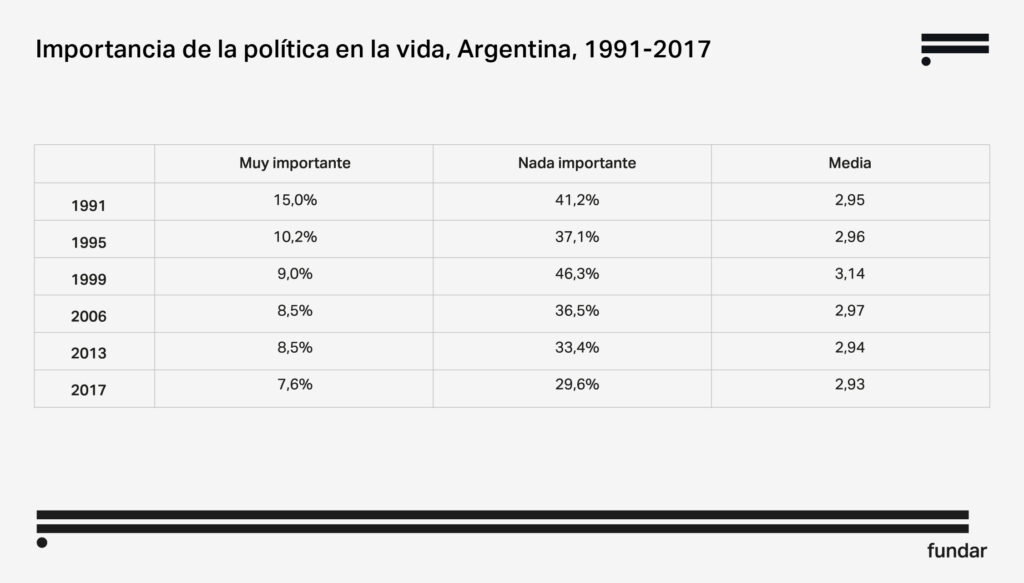This working paper explores an issue of growing political and academic concern in Argentina. The authors study polarization in Argentinian society from a historical perspective, covering the period from the return to democratic rule in 1982 up to the present day.
Our analysis is based on data from two large survey sets, the World Values Survey and LAPOP, which allowed us to reconstruct historical data series on public opinion in Argentina. We argue that polarization cannot be taken as a research object if the established consensus at the time is not also examined. Argentinian society is particularly polarized around the economic/distributional conflict and the cultural/moral conflict, although these differences are rooted in a solid consensus around the importance of democracy and a relatively well-established national identity that takes pride in being Argentinian.
This working paper examines the degree of polarization in society in relation to various social issues (abortion, divorce, migration, the value of work, and inequality, among others) and different groups or statistical categories (educational level, gender, and political convictions). Argentinian society is in the midst of a process of increasing polarization that is being amplified by the influence of sectors with specific ideological leanings. At the same time, there are broad social sectors that tend to hold more moderate positions that often converge.

.
The study drew on data from the surveys mentioned above Some of its findings suggest that in recent years, Argentinian society has adopted more varied positions than the binary divisions that predominate in the public sphere. Examples of this include opinions on the need for state regulation, including some intervention in the economy, or the notable decrease in the importance of politics and religion in people’s lives. Along the same lines, it is clear that the process of secularization and progressive consensus-building exists alongside enduring conservative positions at each end of the political spectrum.


In terms of polarization and voting, Kessler and Vommaro (2018) point out that according to what was observed in the latest survey data, the differences in positions around the distribution of wealth largely mirrored the bicoalitional structure of the current electoral options. Cambiemos (now Juntos por el Cambio) represents the “individualist” position while Frente de Todos accounts for the “egalitarian” position. When it comes to cultural matters, on the other hand, the relationship between party politics and polarization into segments is less clear. While Frente de Todos voters tend to take more progressive views on cultural/moral issues, there is no statistically significant association between Juntos por el Cambio voters and conservative positions on moral issues.

